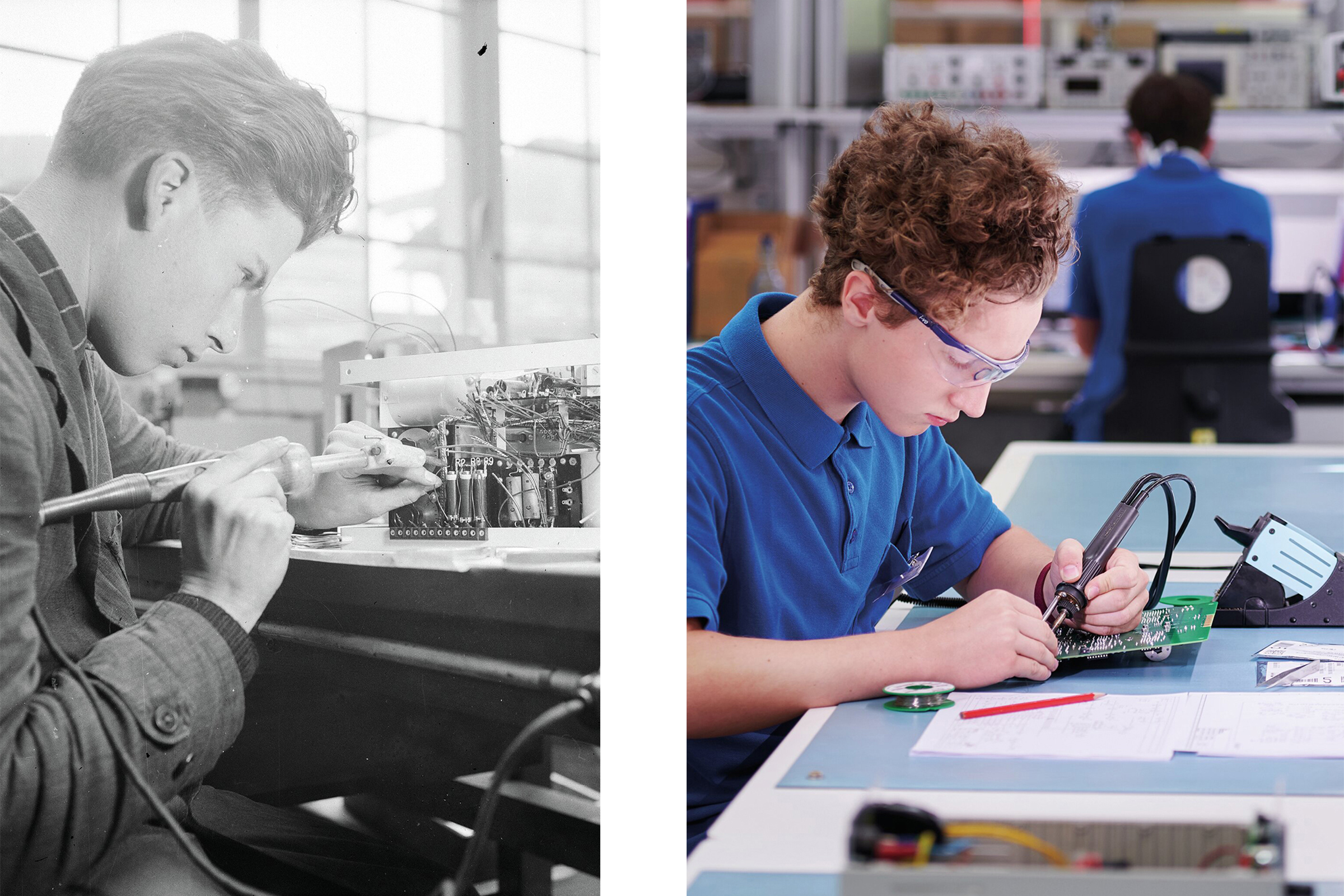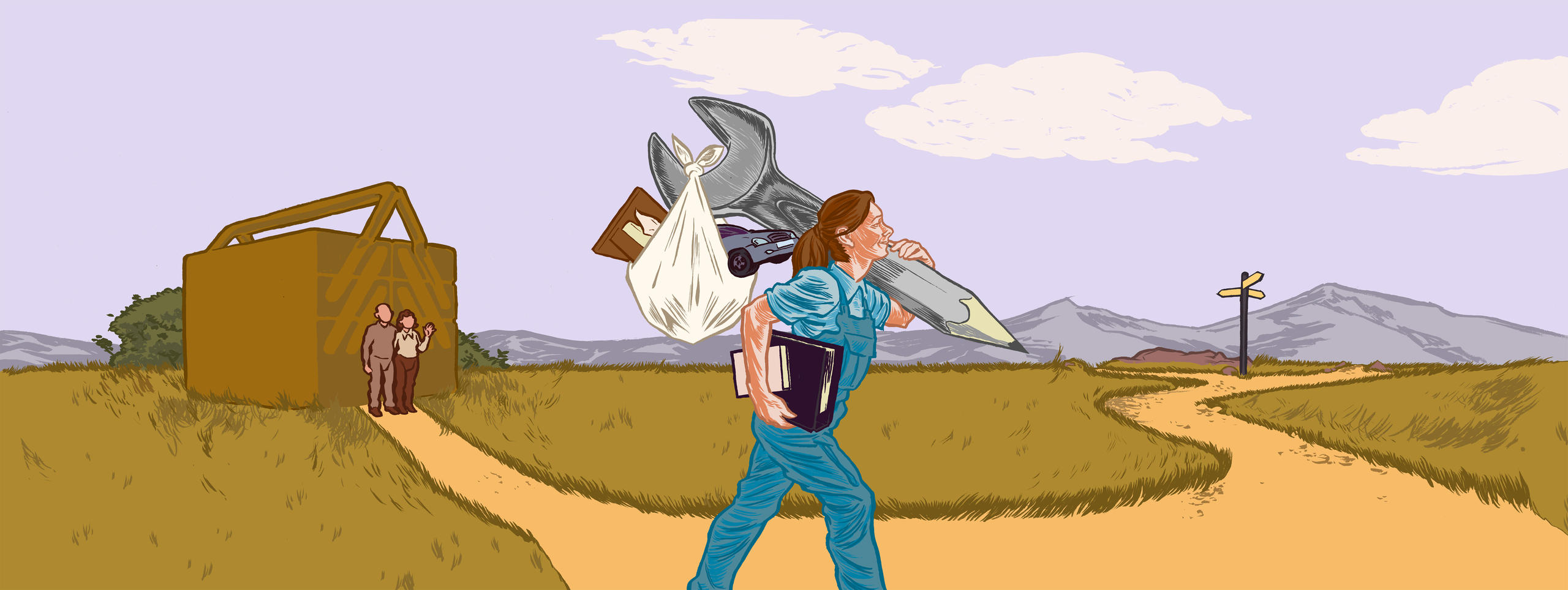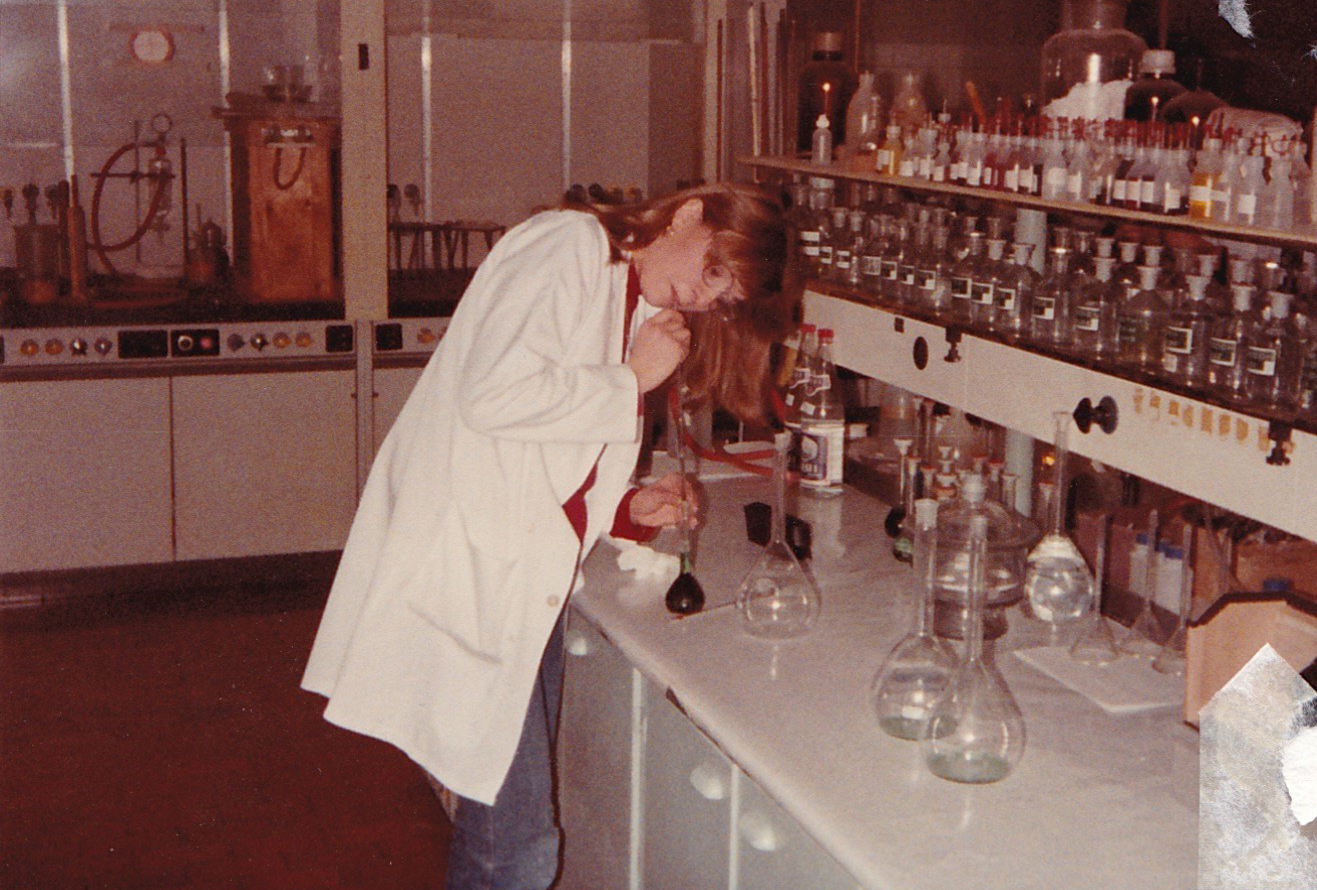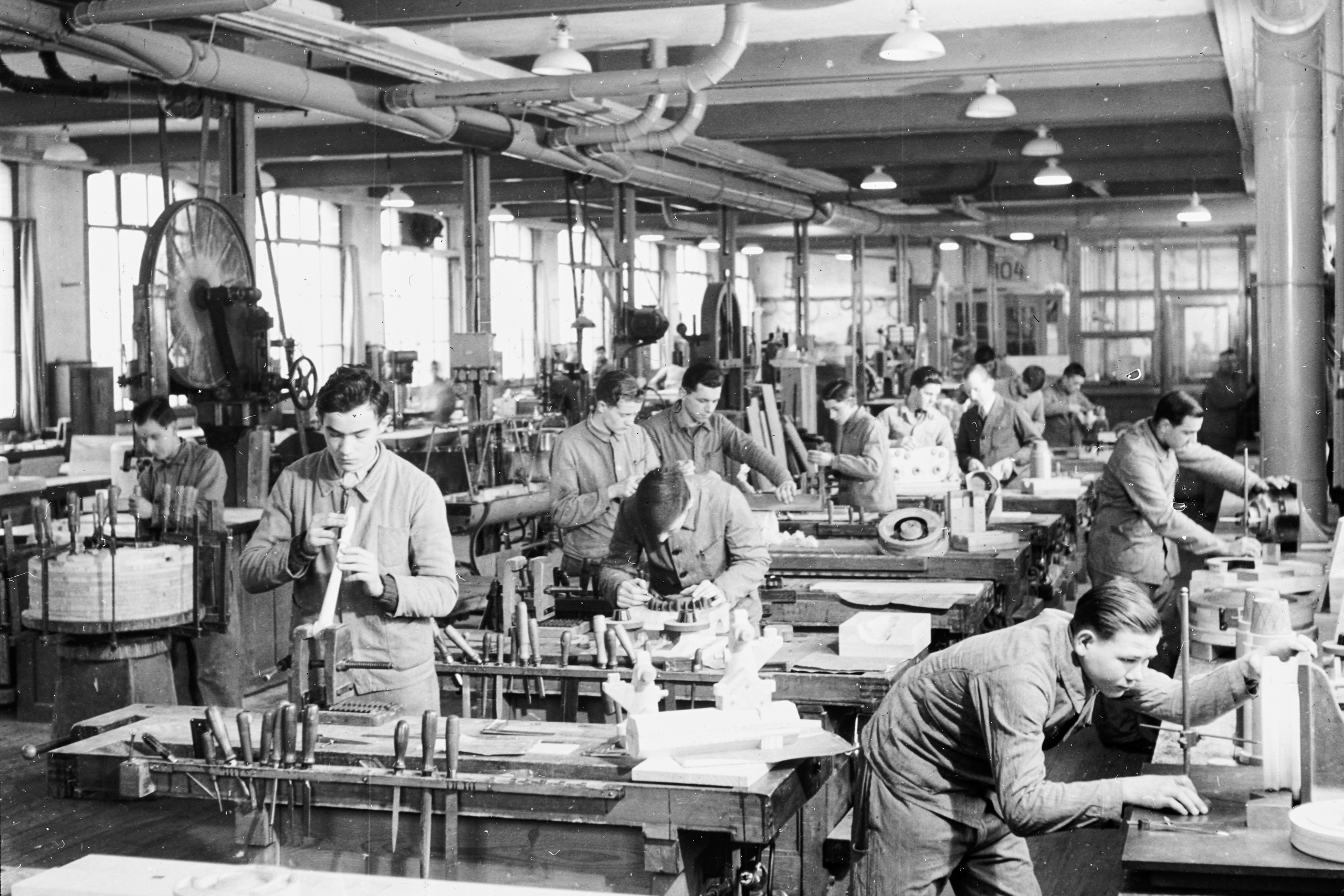
Swiss apprenticeship system: history reveals secret to success

Switzerland’s apprenticeship system is a reason why there is low youth unemployment. A look in the archives of one company shows how modern Swiss vocational training became established – and how much has changed over the years.
A strict time plan, a strong work ethos, and a company band – this is how apprenticeships used to be at electrical engineering firm Brown, Boveri & Cie (BBC), pioneer of Switzerland’s famed dual-track apprenticeship system.
“We didn’t have a time recording system then but fixed times,” remembers retiree Urs, a former BBC trainee. “Every morning you had to pass the doorman, if you were on time, everything was fine. But if you were late, the doorman would notice straightaway and phone your training instructor. This was rather hard as the instructor was also my father!”
Urs is just one of the voices that can be heard in the “Education – External linka leap in time” exhibition, currently running at Baden’s Historical MuseumExternal link, in northwestern Switzerland. This looks at careers and education over the last 100 years, using the history of BBC apprenticeships as a springboard.
The Baden-based company, which later merged with other companies to become the multinational concern ABBExternal link, pioneered the development of apprenticeship training in Switzerland. “They were the first to have the practical training and the theory in one place in the firm,” the museum’s director Carol Nater Cartier told swissinfo.ch.
BBC, which was founded in 1891, grew rapidly, as did the number of its trainees. In 1918 the company decided to found its own factory school on site, offering theory attuned to the practical skills required. This was a first, as before that apprentices had mostly attended more general trades schools like the municipal craftsman’s school in Baden.
Later, in the 1970s, ABB set up a technical school, the first institution of higher vocational education of its kind in Switzerland.
Dual-track approach
This dual-track approach – combining the theory and practical – forms the backbone of today’s apprenticeship scheme in Switzerland, a route taken by two thirds of school leavers.
The system, which has been dubbed the “gold standard” in international vocational training, is also a reason why there is low youth unemployment.

More
Why the world should take note of the Swiss apprenticeship model
“The BBC training was very popular, everyone wanted to go there,” added Nater Cartier. “It was also an investment for the firm, as apprentices stayed there their whole lives afterwards.”
Apprenticeship life
A trainee’s schedule was pretty regimented. It started at 615 am – sharp, as we know from Urs – and ended at 1800. Apprentices also worked on Saturday mornings. The timetable in the gallery of pictures from the ABB Historical Archive below (picture 9) shows a schedule for an apprenticeship entry test from 1948. This started at 650 am with 20 minutes of sport (the inclusion of sport was another pioneering effort), and included short bursts of skills practice, such as filing and using a hammer.
“The apprentices had to be really precise, discipline was important, and they had to be very diligent and show good behaviour,” Nater Cartier explained. “This was not just skills for the job, but learning everything around it, so having a good work and life ethos.”
But there was also time for fun. The company also offered spare time activities like extra sports and other crafts. The BBC apprentices’ music band (the last picture) was highly popular.
“It was like a big family at BBC, which strengthened identification with the company,” Nater Cartier said. Lifelong friendships were formed and marriages were made, as although it was a male-dominated company, women did apprenticeships in areas like secretarial (picture 11) but also as a laboratory technician.

And today?
The exhibition also makes the leap in time to the present day. It shows that although much has changed, for example in the types of apprenticeships done due to digitalisation and technical advances (once machine fitter and technical draughtman were popular, now it’s poly-technician and computer scientist), there are still some similarities.
Apprentices still have to follow a scheduled programme, learn soft skills and, as the main picture on our story shows, some of the disciplines learned then and now look quite similar.
What has changed is that ABB apprentices are no longer taught everything on site. Most modern Swiss apprenticeships involve on-the-job training and theory in a vocational school. But at ABB, technical apprentices go to the Industrial Vocational Training Switzerland centre in Baden (LIBS Industrielle Berufslehren Schweiz), which offers training for the mechanical and electrical engineering industry, for the practical workshop and skills part. The training centre still occupies the premises of the former BBC factory school.
And of course, there is no longer any doorman checking up on trainees – apprentices can now fill in their work hours on the computer.
The exhibition
“Education – a leap time” (Zeitsprung Bildung: BBC-Werkschule, Lehre Traumberuf) exhibition, which is in both German and English, is running at Baden’s Historical Museum until July 31, 2021). It is part of a canton Aargau project on “industry – a leap in timeExternal link”. Due to COVID-19, the museum will however be closed until January 22, 2021.
The first part of the display confronts the visitor with questions around career dreams and looking back on choices. It also shows what life was like as a BBC apprentice though text, pictures, objects, video and audio.
There is also a parallel exhibition in the BBB Baden Vocational School.

In compliance with the JTI standards
More: SWI swissinfo.ch certified by the Journalism Trust Initiative









































You can find an overview of ongoing debates with our journalists here . Please join us!
If you want to start a conversation about a topic raised in this article or want to report factual errors, email us at english@swissinfo.ch.